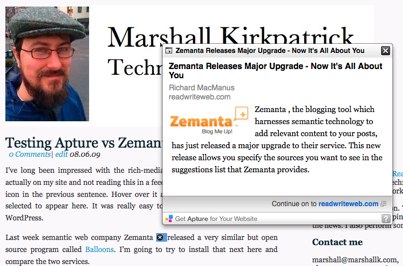As a part of my ongoing thoughts about blog post titles, I thought I’d see how much traction what I think is a very big story would get with a different headline. Instead of “MySpace to Unveil Integration With Sites Around the Web, Using Open Standards” how about we leave the tech-tarnished name MySpace out of it. It’s still the 10th most popular site on the whole internet!
From that story yesterday:
MySpace will announce in the next few weeks a major new feature being added to its MySpaceID product that will allow third-party websites to write updates into the MySpace activity feed just like Facebook Connect, but will also incorporate open semantic microformat code in order to comprehend what those updates are about and make more sophisticated update highlighting and recommendation decisions.
It’s a major move being worked on with both the Activity Streams and Open Social communities – it could push the rest of the web, outside of Facebook, in a direction that supports radical app innovation through the creation of a level playing field of readable data. And it could make MySpace a lot better, too.
“We don’t want to do anything without semantics, to be honest,” Monica Keller, group architect for activity streams at MySpace, told us by phone today. “We can’t afford to show a user content on their home page that they aren’t going to like.” At a time when MySpace is in serious trouble and trying to regroup, a home run by Keller and crew could make MySpace more relevant to people again and impact the rest of the web in positive ways radically unlike the impact of Facebook’s proprietary software.
Here’s the rest. Tell me, is this not a really big deal? Maybe people don’t have confidence in MySpace to pull such an ambitious plan off – but I suspect most readers didn’t even look past the company’s name.
![Reblog this post [with Zemanta]](http://img.zemanta.com/reblog_e.png?x-id=dc2d78fb-2b77-4981-a5b6-c28b9a0df325)

![Reblog this post [with Zemanta]](http://img.zemanta.com/reblog_e.png?x-id=0c2c6c1c-e112-4673-a967-cc7651078005)